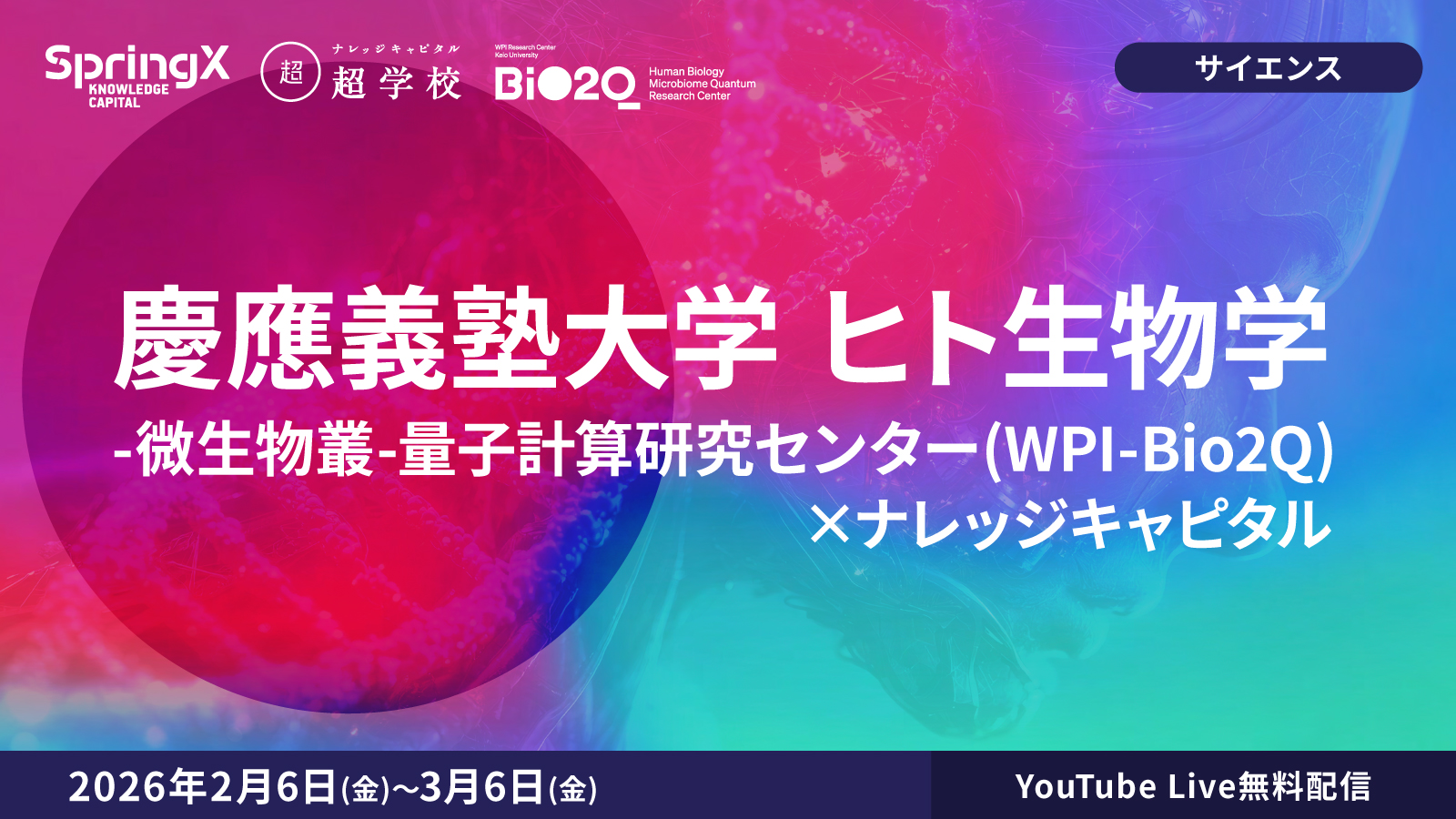EVENT
【Seminar Report】WPI-Bio2Q Open Seminar
November 20, 2025
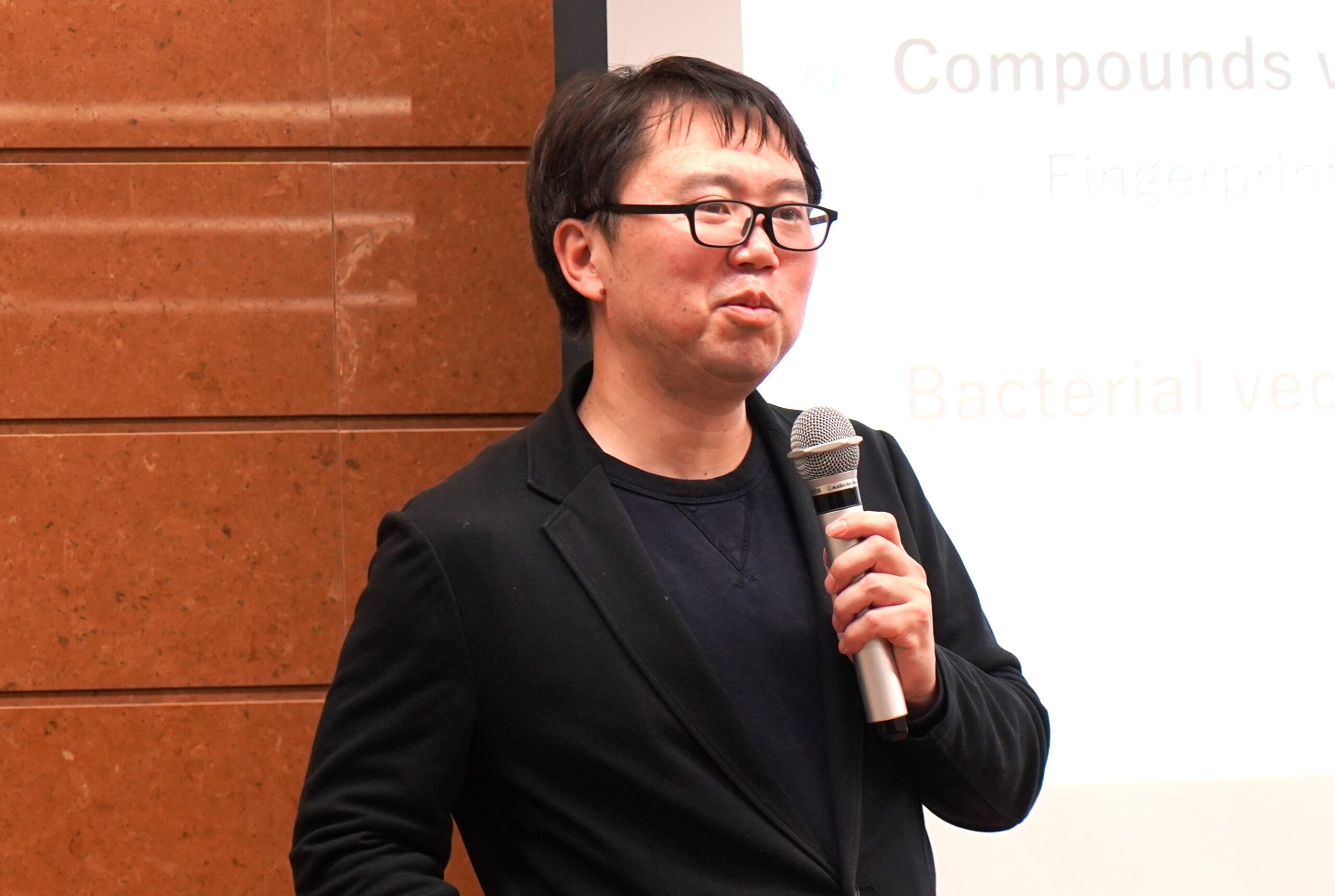
Dr. Takuji Yamada
Credits: WPI-Bio2Q
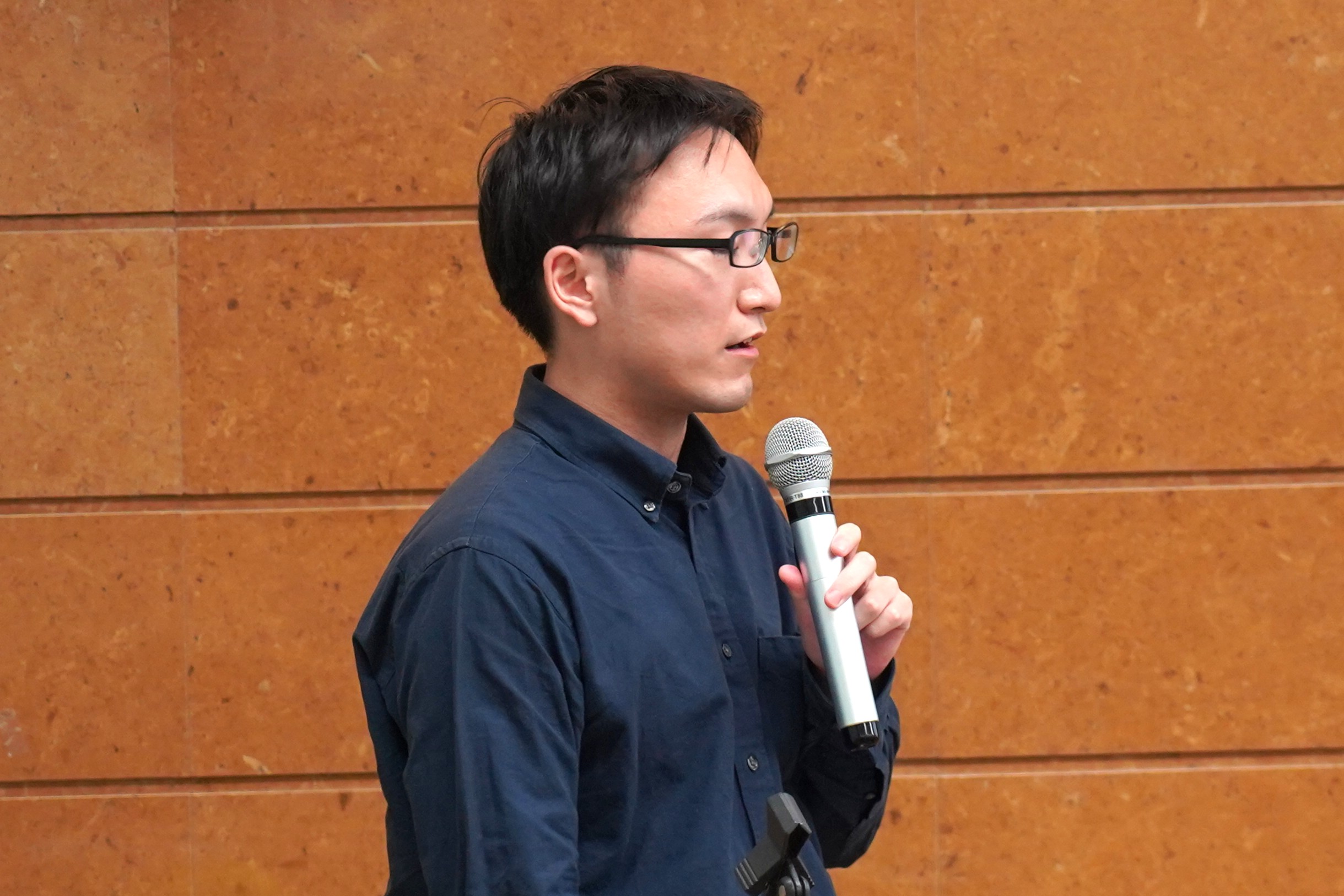
Dr. Keisuke Hirota
Credits: WPI-Bio2Q
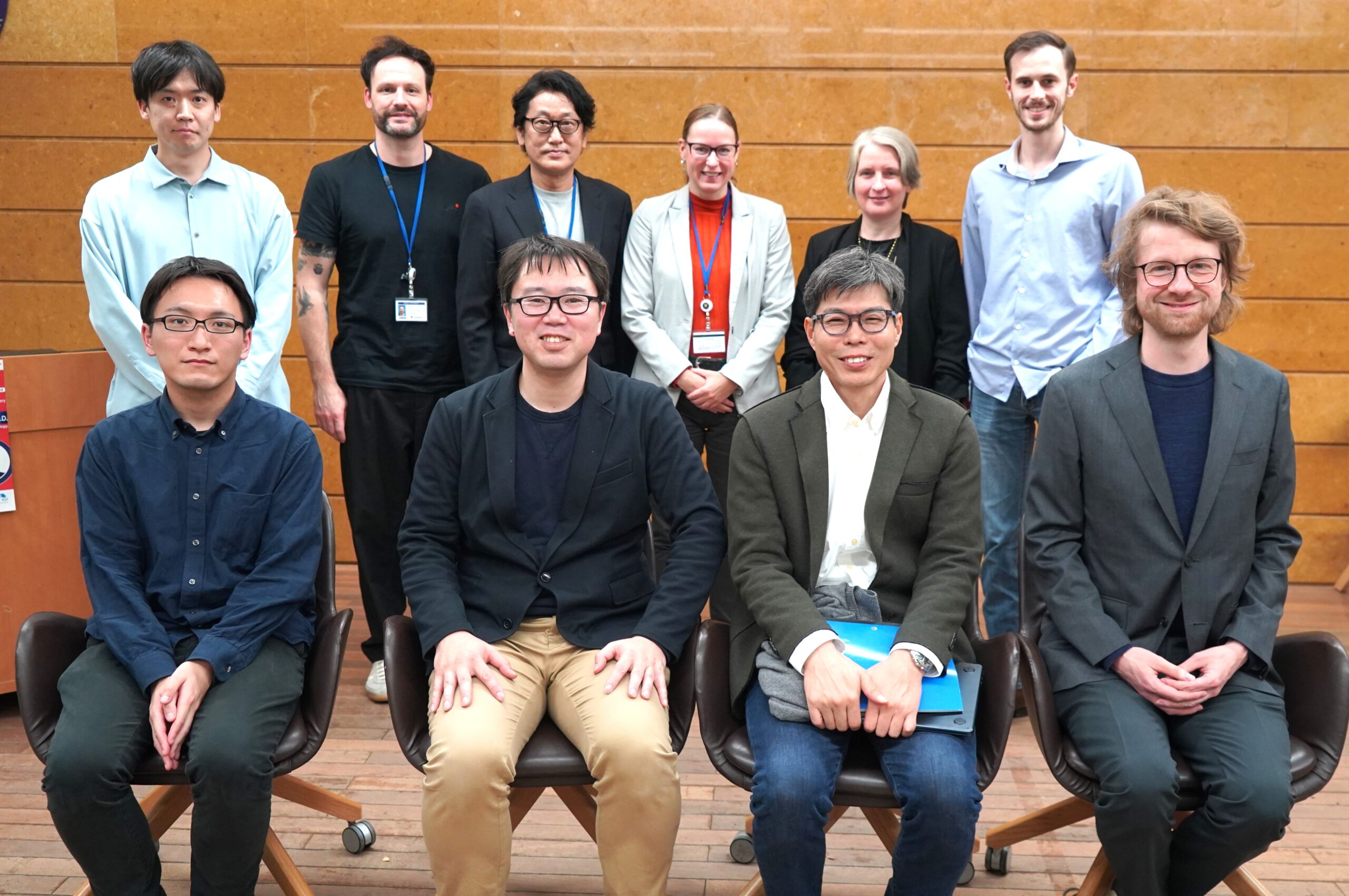
Group photo
Credits: WPI-Bio2Q
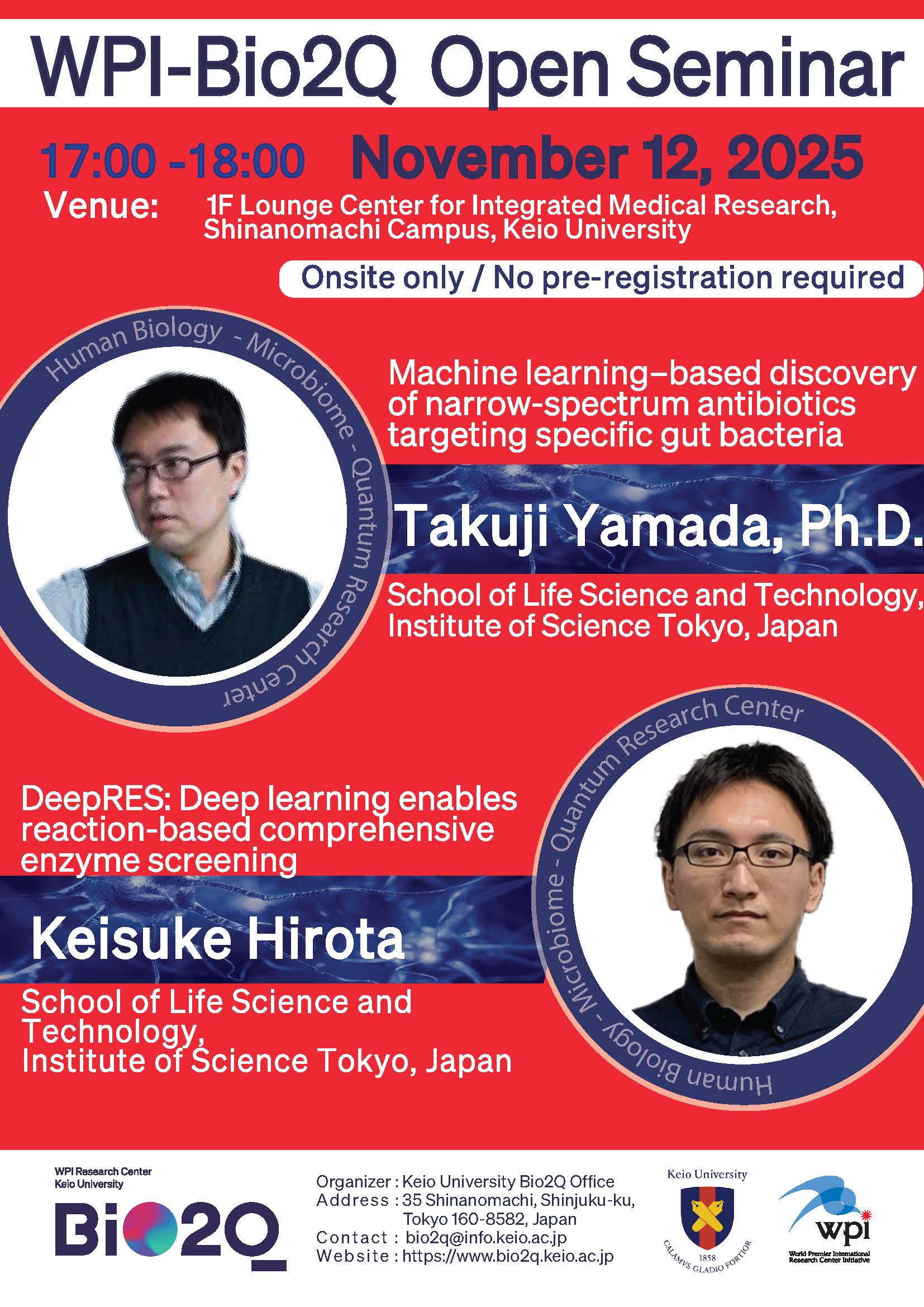
Poster
Credits: WPI-Bio2Q
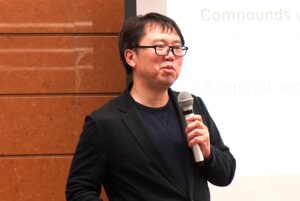
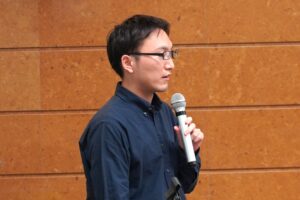
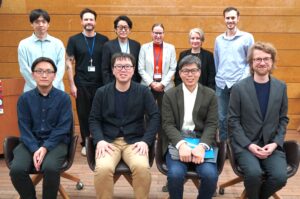
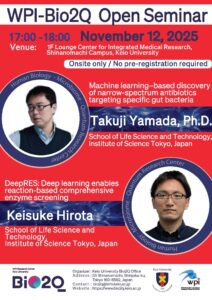




Keio University Human Biology-Microbiome-Quantum Research Center (WPI-Bio2Q) held a seminar as follows.
17:00 -18:00 November 12, 2025
Venue: 1F Lounge Center for Integrated Medical Research, Shinanomachi Campus, Keio University
Talk 1
Speaker:
Takuji Yamada, Ph.D.
School of Life Science and Technology, Institute of Science Tokyo, Japan
Title: Machine learning–based discovery of narrow-spectrum antibiotics targeting specific gut bacteria
Abstract:
Research on the human gut environment has identified numerous disease-associated bacterial species. In many cases, there is a strong need to selectively eliminate specific pathogenic bacteria; however, therapeutic options remain limited. While antibiotics are indispensable for infection control, broad-spectrum antibiotics often disrupt the gut microbiota, leading to adverse effects such as Clostridioides difficile infection and the spread of antimicrobial resistance. Therefore, the development of narrow-spectrum antibiotics that specifically target individual bacterial species is highly desirable but remains technically and economically challenging.
In this study, we developed machine learning models that integrate compound structural information with bacterial genomic profiles to predict antimicrobial spectra and discover narrow-spectrum antibiotic candidates. First, we constructed deep neural network (DNN) models for each bacterial species using experimental growth data for 1,197 compounds across 44 bacterial species. Using compound embeddings as input, the models achieved an average F1 score of 0.608. When applied to external datasets (FooDB and ChEBI), the models identified compounds that selectively inhibited specific species such as Ruminococcus gnavus. Experimental validation confirmed predicted antibacterial activity for compounds including γ-oryzanol, with an overall agreement rate of 61.1%.
These findings demonstrate that AI approaches utilizing chemical representations and language model–like embeddings are powerful tools for identifying species-selective antibacterial agents, offering a promising path toward next-generation antibiotics that treat infections while preserving the microbiome.
Talk 2
Speaker:
Keisuke Hirota
School of Life Science and Technology, Institute of Science Tokyo, Japan
Title: DeepRES: Deep learning enables reaction-based comprehensive enzyme screening
Abstract:
Enzymes accelerate biochemical reactions in living organisms, thus playing an important role in metabolism. Although metabolic pathway databases are growing, many metabolic reactions, termed orphan enzymes, have not been annotated to gene sequences. Moreover, protein databases contain many proteins of unknown function. Owing to this gap between known proteins and enzymatic reactions, various proteins of unknown function may be orphan enzymes; however, available tools cannot adequately predict these links. In this study, we developed DeepRES, an AI-based framework for comprehensive enzyme screening, to explore novel enzyme candidates from proteins of unknown function for reactions of interest. DeepRES implements enzyme screening via two steps: classification of enzymes and non-enzymes and prediction of catalytic capabilities for enzyme‒reaction pairs. We performed screening of 1,255 orphan enzymes involved in the microbiome using DeepRES and successfully identified candidate proteins for 897 orphan enzymes. Comprehensive enzyme screening via DeepRES, which is the first computational tool designed to associate orphan enzymes with proteins of unknown function, is expected to facilitate high-throughput identification of orphan enzyme-encoding genes. Furthermore, DeepRES can be easily integrated into the current genomic analysis pipeline to extend the functional annotation.
More Bio2Q News
【2/25Seminar】WPI-Bio2Q Open Seminar: Andrew Wray, PhD
Keio University Human Biology-Microbiome-Quantum Research Center (WPI-Bio2Q) will hold a seminar as follows. This is an event for faculty, ...
Two New Titles Released in the “Booklets Series for Young Readers” : Issue 09 (T...
The Digital Booklet Series for Young Readers, which introduces research activities at Bio2Q, has added two new issues. Issue 09 features ...
WPI-Bio2Q Newsletter "Bio2Q Connect" Vol.2, Issue 13 Released
WPI-Bio2Q has published the latest issue of its newsletter, “Bio2Q Connect” (Vol. 2, Issue 13, January 29, 2026). This issue covers a broad ...
Open Call: Postdoctoral Fellow for Professor Nadinath Nillegoda’s Lab
Prof. Nadinath Nillegoda, specializing in proteostasis and cell repair, is currently hiring a postdoctoral fellow. We are looking for appli...
【CHO School Series】Exploring the Frontiers of Life Science: A Special 3-Part Onl...
Keio University Human Biology-Microbiome-Quantum Research Center (WPI-Bio2Q) in collaboration with Knowledge Capital, will host a three-par...







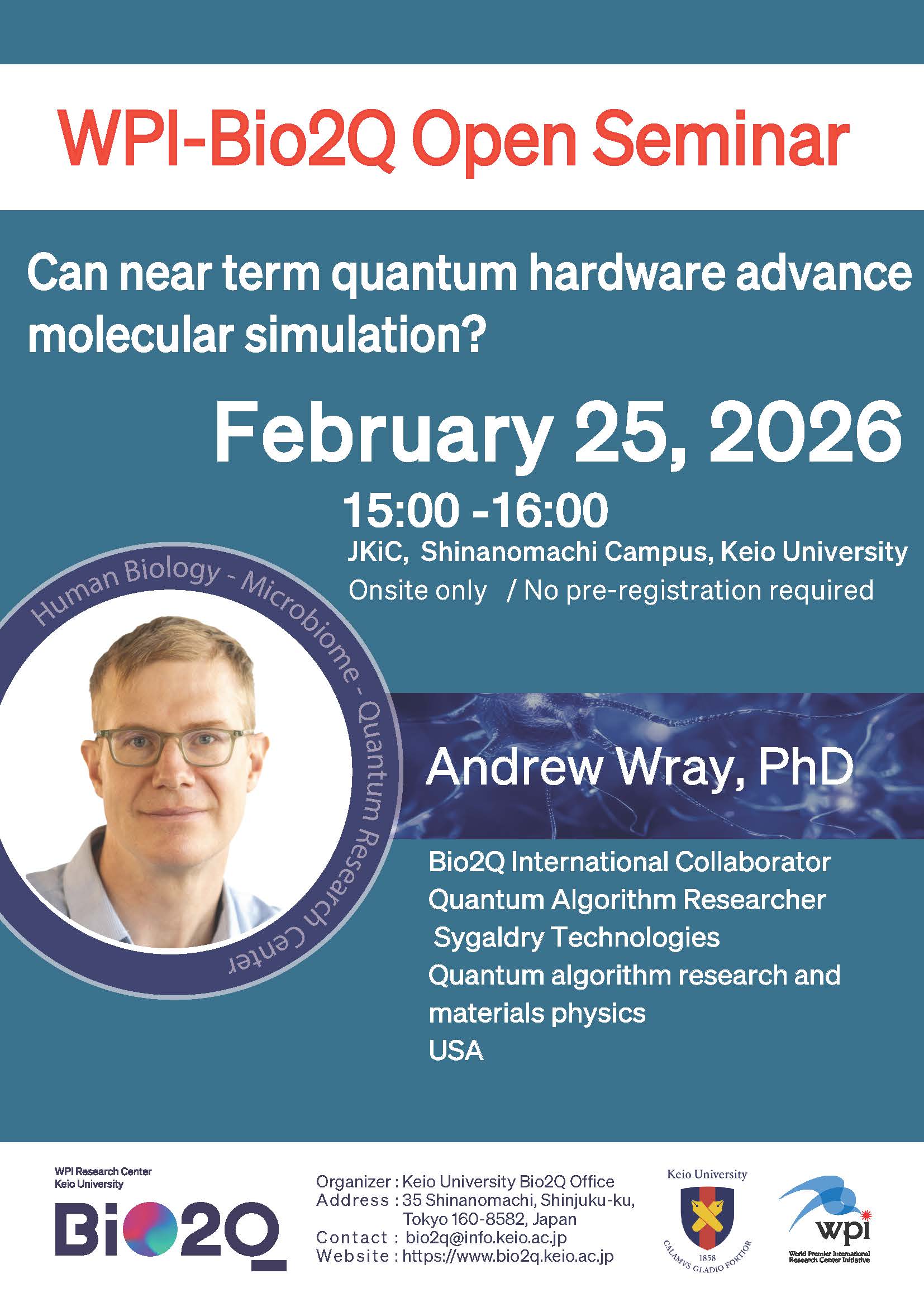

2-1.png)

